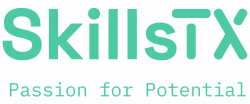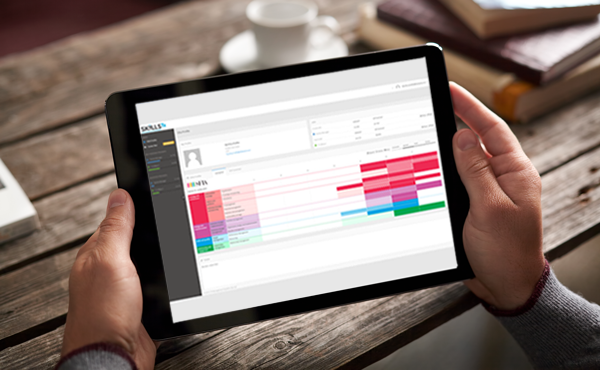The working world is getting an overhaul, with terms like quiet quitting, remote/hybrid work and the great resignation becoming common terms in our vernacular. And it’s not without merit, with 22% of all job seekers reported quitting their previous job, and 73% of currently employed workers actively thinking about quitting their jobs.
With changes abound, maybe it’s time organizations get ready to look at something that until so far has stayed consistent: the resume or curriculum vitae (CV).
The traditional resume is a standard feature of the hiring process, listing an applicant’s education and employment history on one to two pages, so that at a glance, HR or the hiring manager can decide next steps. But how effective are resumes in showing the type of leadership skills, communication abilities and disposition a candidate possesses? How about the skills and knowledge learned from their experiences? Resumes and college diplomas can’t answer that (and let’s be honest, a resume is actually more of a marketing document). Perhaps it’s time to take another look at how organizations can fulfill their hiring goals in a manner that’s easier, faster, and more conducive to an organization’s lasting success.
The digital transformation doesn’t stop with your tools
Like many others, your organization may be undergoing a digital transformation – global spending on digital transformation will reach USD 2.8 trillion in 2025 (more than double than in 2020), doesn’t it make sense for the hiring process to as well? With a focus on skills and competencies instead of titles and hierarchies, companies can elevate themselves from being just another cog in the machine to one where every employee contributes directly to creating value for customers by developing their own unique set of skills which may be combined with those already present to create innovations or solve problems within an organization.
A solution for employers in this skills-based economy is the digital credential or badge. Digital credentials are a more modern way to earn and identify recognition for knowledge, skills and professional competencies in the digital economy. They’re verified by accredited assessors under an assessment scheme governed by the SFIA Foundation and ensure potential and existing employees are assessed based on whether they have the right set of skills and competencies for their role, and that people are hired more objectively for positions they’re suitably experienced for. This will help you build a more productive workplace and improve employee retention and satisfaction!
While digital badges may be a newer concept for some, the global digital badges market is projected to grow from $1.7 billion in 2021 to $5.3 billion in 2030 – safe to say it’s not a passing fad.
So, what are the benefits of digital badges?
Micro-credentialing:
Increasingly we’re seeing organizations taking a skills-based approach towards their organization. Digital badges can be used to recognize specific knowledge, skills or competencies, instead of a having just a general overview (and assumption) of the tasks done in their previous roles. This way, employers can better distinguish between theoretical understand and practical experience, gauge the applicant’s skills and competencies and give them the chance to elaborate during an interview, and ensure that talent is matched with positions in which they can thrive. As a bonus, the process provides more objective data for decision making, rather than conscious and unconscious bias based on other factors. A realistic view can be taken during the hiring processes as to how much training and development might be needed to make the candidate fully productive and suitable proficiency for the role. All this information is immediately available with a click on a badge in their skill profile.
Continuous learning
Professional development is increasingly being seen as a must-have by both employers and employees, digital badges are ideal as they can be continuously updated as new skills are earned. On the employer’s standpoint, it’s also an easy way to see the applicant’s development journey and give an indication on their aptitude and willingness to further develop while in their organization.
Wider talent pool
Digital badges are often utilized by online educational institutes and certification bodies, and tend to be more affordable than other traditional forms of credentialing, such as college degrees. This means employers have access to candidates from a greater variety of backgrounds, thus widening their talent pool. When HR departments search on LinkedIn for candidates with specific skills, they can easily find unconventional candidates, including those who don’t have college degrees but have the skill set a particular position needs.
Verifiable
When looking at a traditional resume, you’re trusting that the self-reported, unverified information in front of you is correct. Vetting the individual’s credentials is a time-consuming process, and frankly, a pain. Digital badges, such as SFIA digital badges are globally recognized—meaning that your organization can also attract candidates from across borders, particularly useful if the required skills are scarce or in high demand!
For most technology dependent organizations (i.e. most companies), hiring and developing talent is taking a larger proportion of your time. Using tools like SkillsTX ensures you make better, faster and clearer decisions around role definition, skills assessment and fit.
Do you have the skills and competencies needed to meet changing demand?
Does your organization have a skills-based talent strategy? Do you have the tools to identify and attract the skills you have and need?
Get in touch today for a free discovery call or to set up a free demonstration on how SFIA and SkillsTX works. We’re looking forward to propelling you into the future.






